Lenovo ThinkCentre M92 Tiny System Review: Pint-Sized Power
by Dustin Sklavos on August 17, 2012 12:00 AM EST- Posted in
- Systems
- Lenovo
- Mini ITX
- Ivy Bridge
- Enterprise
Application and Futuremark Performance
Ignoring Intel's naming shenanigans with the Core i5-3470T for a moment, it's hard to get too excited about the CPU choice in the ThinkCentre M92 Tiny when an extra ten watts or hundred dollars would get Lenovo a quad core processor. The power supply should be able to handle it without too much trouble, as there's very little else in the system it has to power, and you'll see there's at least a little thermal headroom in Lenovo's design. That said, keep in mind the M92 is roughly as small as the Logic Supply system we reviewed and smaller than the two Puget Systems machines we're comparing it against.
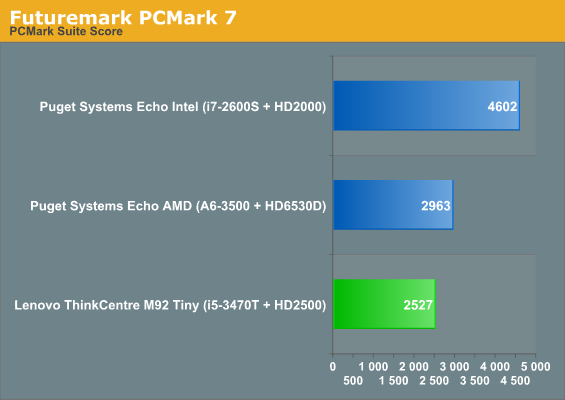
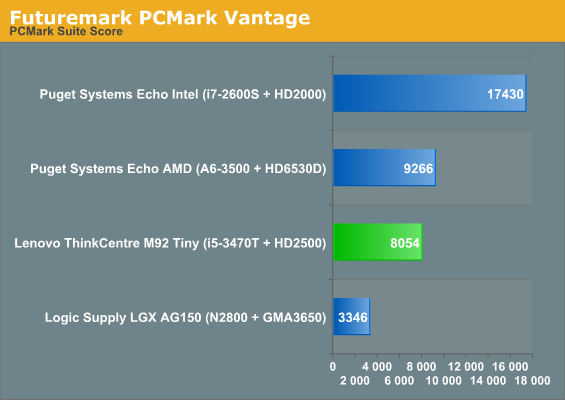
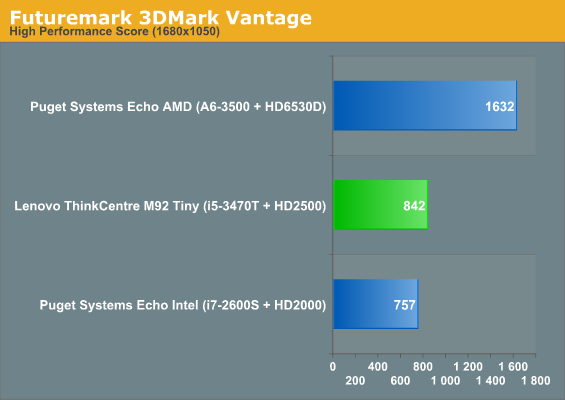
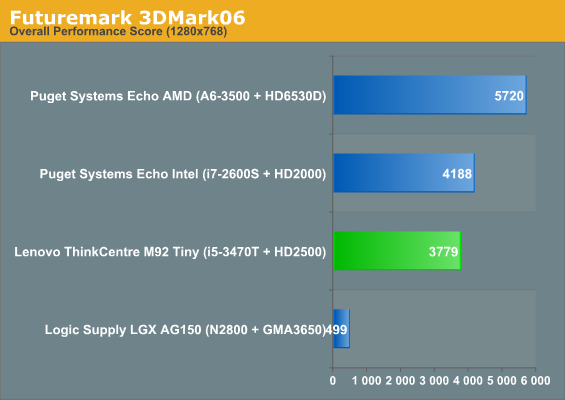
The PCMarks are unkind to the M92 due to its mechanical storage (the Puget Systems Echo builds both feature SSDs), and unfortunately Lenovo asks an ungainly $220 for an upgrade to a 128GB SSD. The Echo also benefits from being able to support a quad core processor, but keep in mind the Echo is bigger to boot and is powered off of a 95W external power brick instead of a 65W.
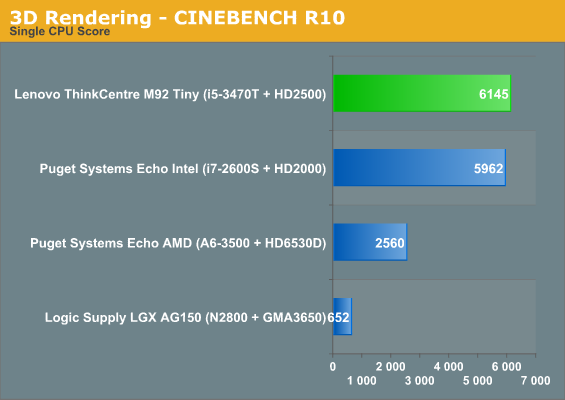
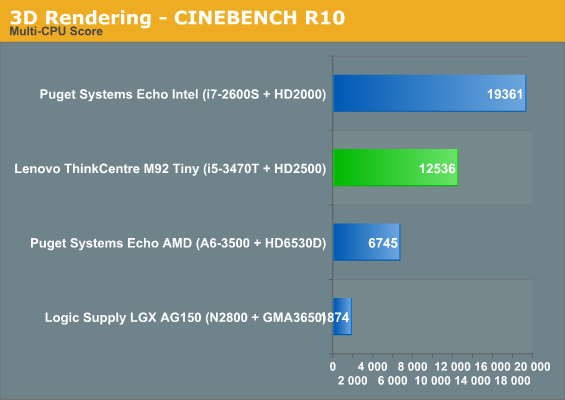
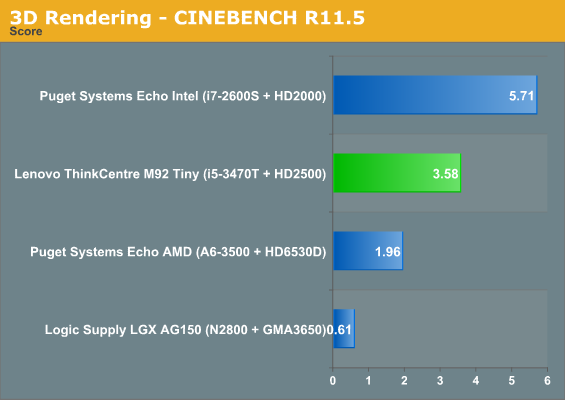
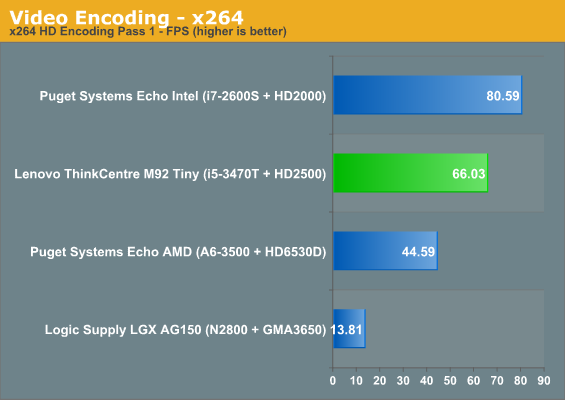
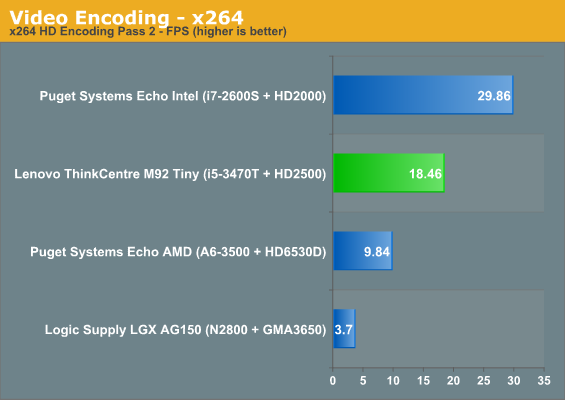
Ivy Bridge brings us strong single-threaded performance and the M92 is impressive enough there, but the instant extra cores are brought onto the field it loses a lot of traction. Still, the i5-3470T should be adequate for most tasks and certainly more than enough for kiosk duty.










62 Comments
View All Comments
MichaelD - Saturday, August 18, 2012 - link
A Seagate Momentus HD would've been perfect in this little system. It's cheap and spits the difference in performance b/t a true SSD and a true mechanical HD.The Grinch - Thursday, October 25, 2012 - link
To clear up some misconceptions here:The case is not riveted shut. One 5mm Phillips screw allows the clamshell to be opened.
The HDD is not 'slow', it is in fact 3.0 Gbps, just lower energy consumption.
Wireless is an option.
We've seen many of these lose their Ethernet port functionality, new motherboards are currently on backorder.